Mouth sores have many potential causes, including infections, trauma, and tobacco use. Seek medical attention for certain mouth sores, especially those with white patches or that develop after starting a new medication.
Overview
Mouth sores are common ailments affecting many people at various points in their lives. These sores can appear on any soft tissue within your mouth, including the lips, inside of your cheeks, gums, tongue, and floor and roof of your mouth. Generally, they are minor irritations lasting 1 to 2 weeks, but in some cases, they can indicate more serious conditions like infections or mouth cancer.
What Do Mouth Sores Look Like?
Mouth sores vary in appearance depending on their cause. They can be white, yellow, red, or purple and can differ from the surrounding tissue. The following images showcase different types of mouth sores. Note that these images are not intended for self-diagnosis. If you have unexplained or persistent mouth sores, consult a healthcare provider for diagnosis and treatment.
Canker Sores
Canker sores, also known as aphthous stomatitis or aphthous ulcers, appear as small, oval-shaped ulcers in the mouth. They may be white, gray, or yellow, surrounded by a red “halo” of irritation, or a painful red area.

Canker sores affect about 25% of the population and typically heal on their own within a couple of weeks. Recurring ulcers may be due to conditions such as Crohn’s disease, celiac disease, vitamin deficiency, or HIV.
Subgroups of Canker Sores
- Mild: Less than 1 centimeter in diameter, healing within 1 to 2 weeks.
- Major: Deeper and larger (2 to 3 centimeters), taking weeks or months to heal.
- Herpetiform: Smaller (1 to 2 millimeters) but occur in clusters of 10 to 100, healing in a few weeks.
Cold Sores
Cold sores, caused by the herpes simplex type 1 virus (HSV-1), appear as fluid-filled blisters near the mouth and lips. They may be red or darker in color and often tingle or burn before becoming visible.
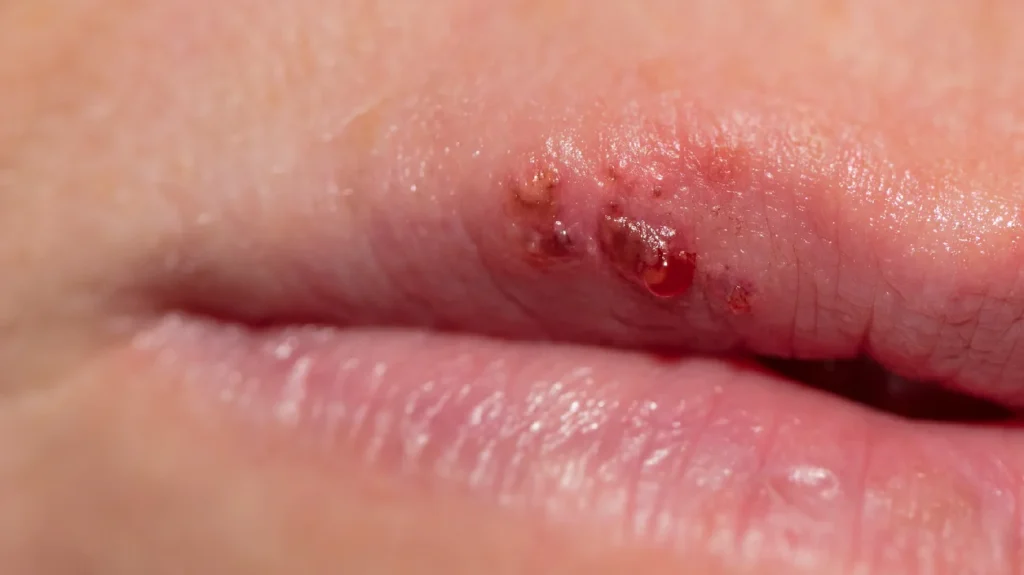
The virus can remain dormant in the body and reactivate during times of stress or weakened immunity, lasting 1 to 2 weeks. Cold sores are contagious and spread through contact with the sores, kissing, sharing food, or cosmetics.

Folate Deficiency and Anemia
A lack of folate (vitamin B9) can lead to folate deficiency anemia, which impacts red blood cell production and oxygen transport in the body. This deficiency can cause mouth sores resembling small ulcers or canker sores, appearing white, gray, yellow, or red.

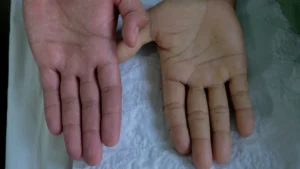
Gingivostomatitis
Gingivostomatitis is a common infection of the mouth and gums, often seen in children, causing tender sores on the gums or inside of the cheeks. These sores can appear grayish or yellow on the outside and red in the center, lasting about 2 to 3 weeks.
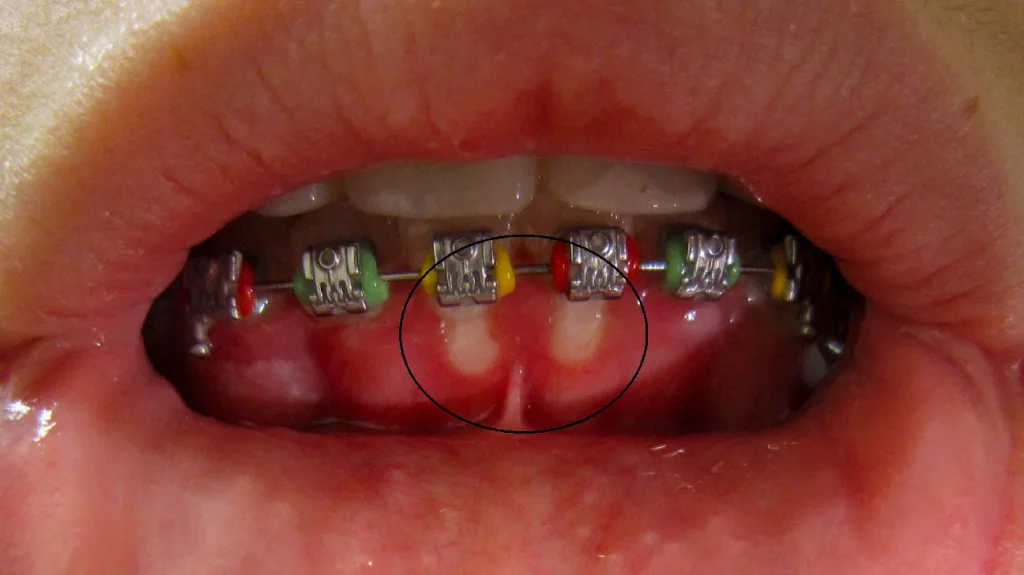
Infectious Mononucleosis
Also known as mono, this condition is caused by the Epstein-Barr virus (EBV) and can cause a rash inside the mouth, presenting with pink or purple flat spots.

Oral Thrush
Oral thrush is a yeast infection that develops inside the mouth and on the tongue, appearing as creamy white bumps. It is common in infants and individuals with weakened immune systems.
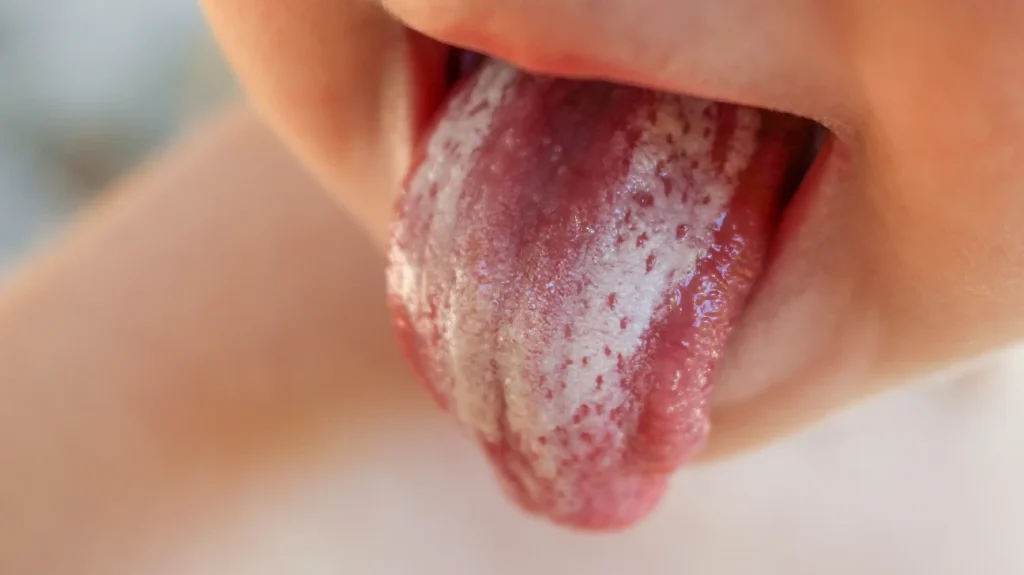
Hand, Foot, and Mouth Disease
Caused by viruses in the enterovirus family, this condition is common in children under 5, resulting in painful red blisters in the mouth and red spots on the palms, soles, buttocks, or genital area.

Leukoplakia
Oral leukoplakia appears as thick, white patches on the tongue and mouth lining. It is common in tobacco users and can sometimes indicate a risk for oral cancer.
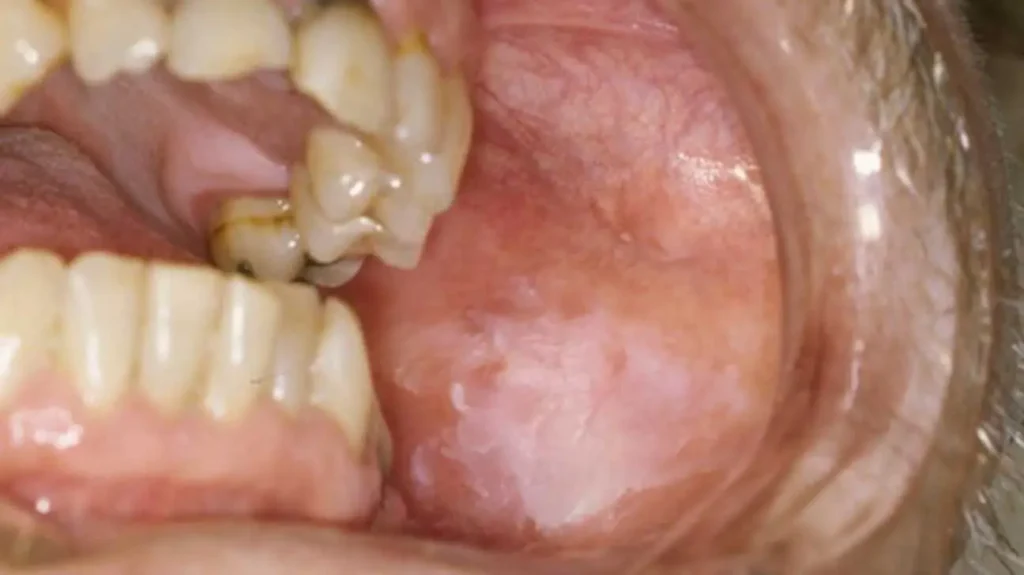
Oral Lichen Planus
This chronic inflammatory disorder affects the mucous membranes, causing white, lacy patches or red, swollen patches in the mouth.

Celiac Disease
An immune response to gluten causing damage to the small intestine, leading to mouth sores due to nutrient absorption issues.

Mouth Cancer
Mouth cancer involves abnormal cell growth in the mouth, presenting as ulcers, white patches, or red patches that do not heal. Early detection is crucial for better outcomes.

Pemphigus Vulgaris
A rare autoimmune disease causing painful, itchy blisters in the mouth, throat, and other mucous membranes.

Symptoms of Mouth Sores
Common symptoms include:
- Redness
- Pain (especially when eating or drinking)
- Burning
- Tingling Depending on the size, severity, and location, sores can make eating, drinking, swallowing, talking, or breathing difficult. Contact a healthcare professional if you experience sores larger than 1/2 inch, frequent outbreaks, rash, joint pain, fever, or diarrhea.
Causes of Mouth Sores
Mouth sores can result from:
- Biting your tongue, cheek, or lip
- Burns
- Irritation from dental hardware
- Overbrushing
- Tobacco use
- Herpes simplex virus
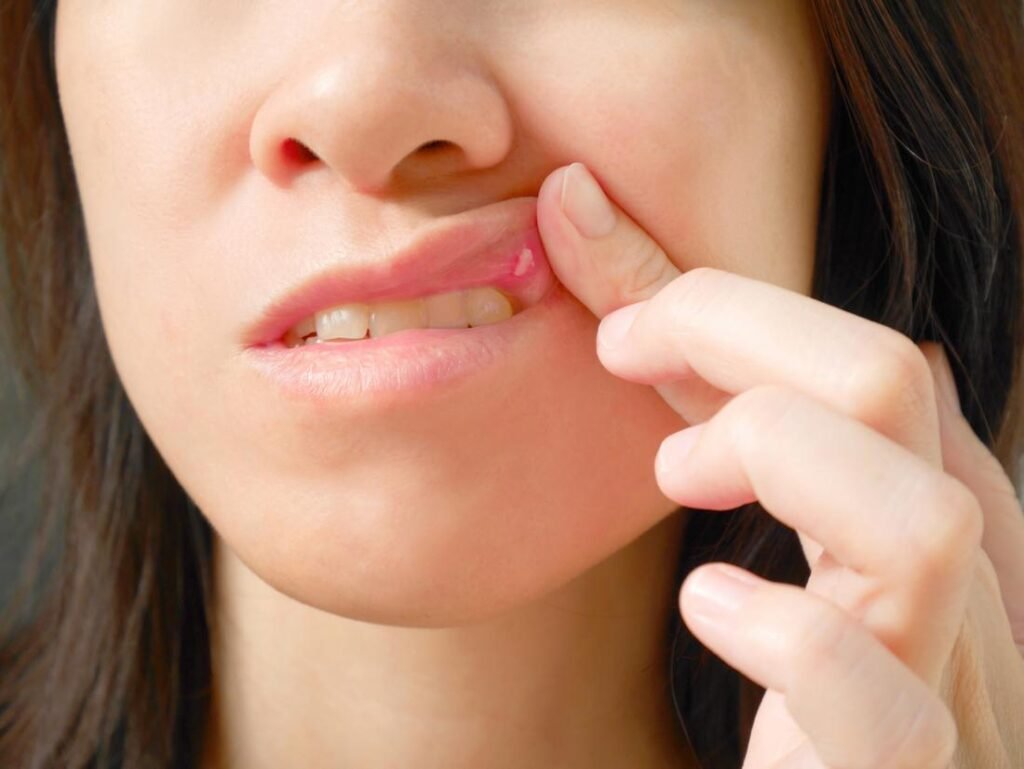
Diagnosis and Treatment
You can often identify a mouth sore without needing a healthcare professional. However, seek medical advice if sores have white patches, don’t heal, worsen, or are associated with new medications or treatments. Treatment may involve pain medication, anti-inflammatory drugs, steroid gels, or addressing underlying infections.
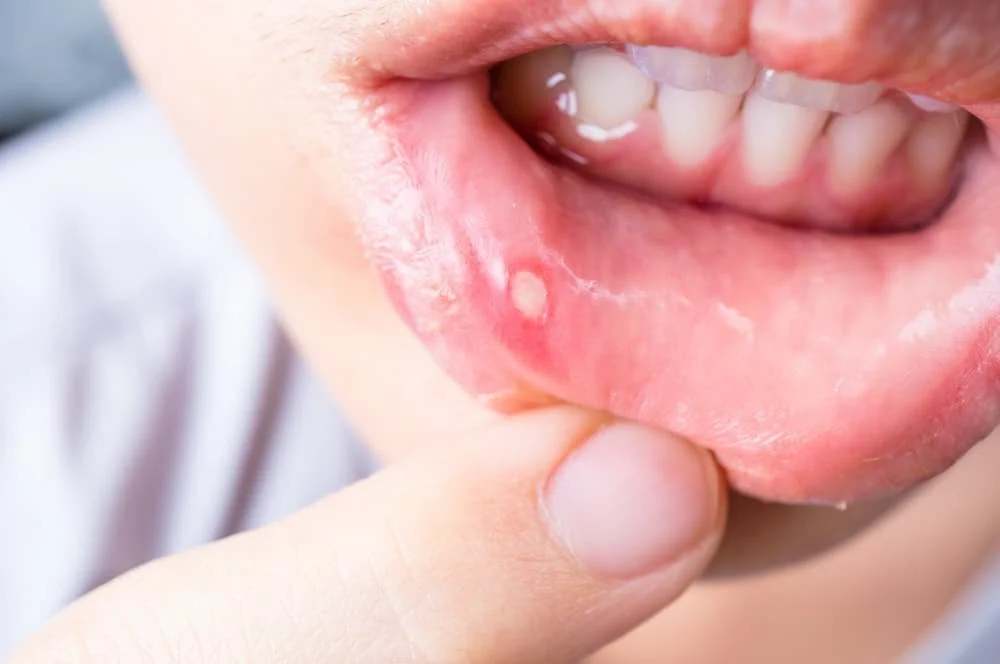
Home Remedies for Mouth Sores
- Avoid hot, spicy, or citrus foods
- Avoid tobacco and alcohol
- Gargle with salt water
- Eat cold foods like ice pops
- Use over-the-counter medications or pastes
- Apply a baking soda and water paste
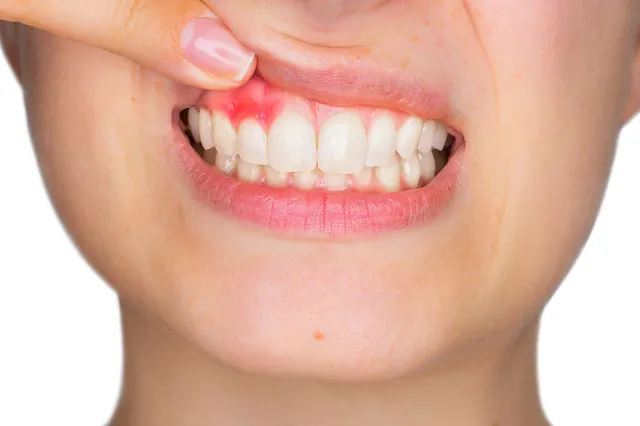
Prevention of Mouth Sores
While not all mouth sores can be prevented, you can reduce the risk by:
- Avoiding very hot foods and drinks
- Chewing slowly
- Using a soft toothbrush
- Practicing good dental hygiene
- Reducing stress
- Eating a balanced diet
- Taking vitamin supplements
- Drinking plenty of water
- Avoiding tobacco and alcohol

Frequently Asked Questions
How do you heal sores in your mouth?
A doctor may prescribe medication to treat the sores or address underlying causes. Home remedies include gargling with salt water and applying a baking soda paste.
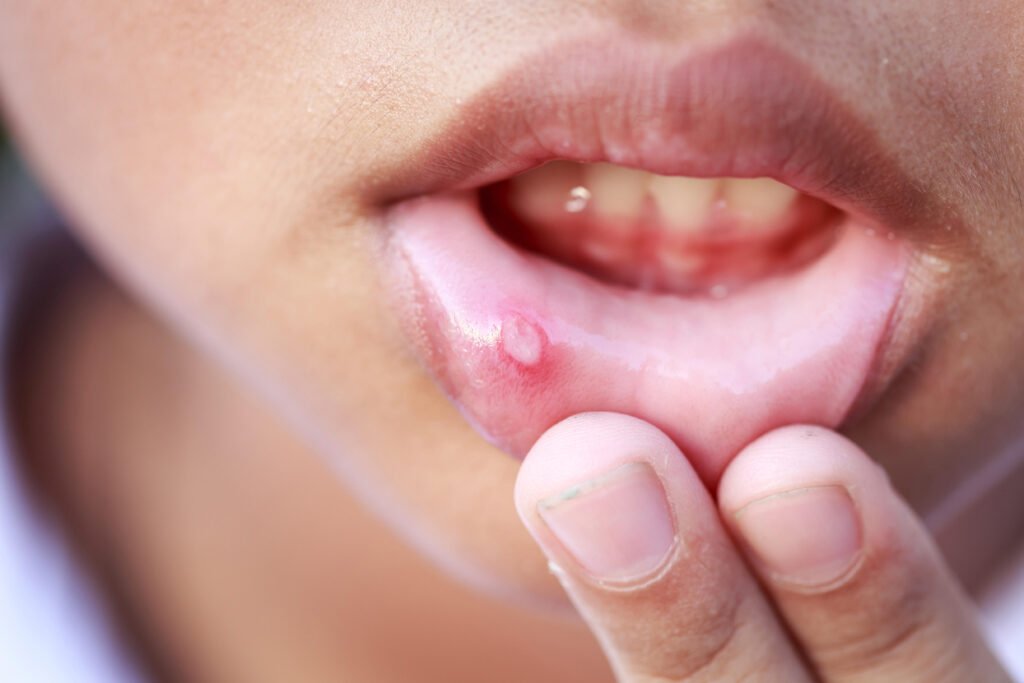
When should I be concerned about mouth sores?
Consult a doctor if you have recurring, large, very painful sores that don’t heal or are accompanied by fever or other symptoms.
How long do mouth sores last?
Canker sores usually resolve within 1-2 weeks, but other sores may take longer. Seek medical advice if a sore lasts longer than 2 weeks.
Takeaway
Mouth sores are common and typically last 1 to 2 weeks. They can make eating and drinking painful, but over-the-counter treatments may help. Persistent or recurring sores may indicate a more serious condition, warranting a visit to the doctor for diagnosis and treatment.



